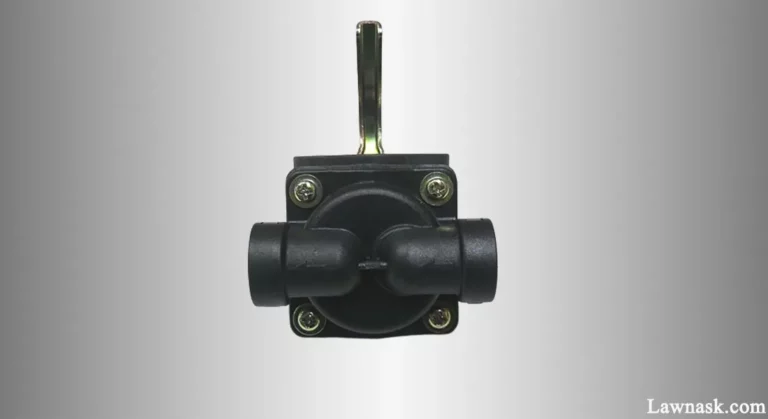Why Does My Lawn Mower keep Blowing Fuse?
A loud bang, followed by sparks and smoke. That’s what happens when a lawn mower’s fuse blows.
If your lawn mower’s wiring is damaged, the circuit is overloaded, the starter solenoid is faulty, or the PTO switch is malfunctioning and overheating, it may keep blowing fuses.
The fuse is a safety component that keeps you safe and protects your equipment from serious damage if the appliance experiences an electrical surge. So, learn and find out why lawn mower keeps blowing fuse and how to fix it.

How To Tell If A Fuse Is Blown in Lawn Mower?
The best way to tell if a fuse is blown on a lawn mower is to visually inspect it. Blown fuses will have a melted or distorted appearance, and may also have a blackened or burned smell. Additionally, you can use a multimeter to check the continuity of the fuse. If the multimeter registers zero ohms, the fuse is blown.
5 Reasons Behind Lawn Mower Keeps Blowing Fuse
There are a few possible causes of this problem, and understanding them can help you better diagnose and fix the issue. Check them out:
1. Faulty wiring
Faulty wiring in a lawn mower can cause the fuse to blow due to a short circuit or an overloaded circuit. This can be caused by damaged or frayed wires, incorrect wiring, loose connections, or electrical components that are not compatible.
The Fix
To fix this problem,
- Check the wiring for any signs of damage or loose connections. Look for any frayed wires, broken insulation, or loose connections.
- To avoid sparking, replace frayed wires instead of repairing them. New cables last longer before failing, reducing maintenance.
- Make loose connections more secure by using zip ties.
2. Overloaded Circuit
The most likely cause of a lawn mower continually blowing fuses is an overloaded circuit. This can happen when the lawn mower is drawing too much current, or when the circuit itself is overloaded.
If the lawn mower is drawing too much current, then it occurs due to a faulty component such as the motor, a worn or broken belt, or a defective spark plug.
If the circuit itself is overloaded, then it causes due to too many items connected to the same circuit or a circuit that is not rated for the amount of current the lawn mower is drawing.
The Fix
You need to,
- Check the wiring to ensure it is properly connected and that there are no loose or frayed wires.
- Make sure the circuit breaker is not faulty and is properly rated.
- Check the lawn mower power cord for any damage or frays.
- Inspect the lawn mower motor for any loose connections or worn parts.
- Replace the fuse with a new one of the same rating.
3. Defective Starter Solenoid
The most likely cause of a lawn mower blowing a fuse is a defective starter solenoid. The starter solenoid is responsible for providing the electrical power necessary to start the engine, and if it is defective, it can cause a short circuit that trips the fuse.
The Fix
To solve this problem,
- Check the starter solenoid for any signs of damage or corrosion.
- If damage is found, replace the solenoid.
- Make sure all wiring is securely connected and not damaged.
- Check the fuse, and replace if it is blown.
- Test the starter solenoid by connecting a jumper wire between the two posts. If the solenoid does not activate, replace it. If the solenoid activates, the fuse is likely the issue.
- Replace the fuse with one of the same rating.
Related Post: How To Tell If Your Lawn Mower Starter Solenoid Is Bad?
4. Faulty PTO switch
If your lawn mower keeps blowing fuses, it’s likely due to a faulty PTO (Power Take Off) switch. This switch connects the mower to the engine and allows it to start when you engage the blades. If the switch is damaged, it can cause an electrical short that will blow the fuse.
The Fix
- Check the wiring and connections for the PTO switch for any loose or frayed wires.
- Replace the fuse with one that is the same amperage as the original.
- Test the PTO switch to make sure it is not faulty.
- If the PTO switch is faulty, replace it with a new switch.
- Reassemble the mower and test to make sure the fuse does not blow again.
5. Overheating
If your lawn mower is repeatedly blowing fuses, it could be caused by an overheating issue. This could be due to a build-up of debris, such as grass clippings, restricting the air flow to the motor or it could be due to an electrical issue, such as a faulty switch or wire.
The Fix
To fix this,
- Check the oil level and add oil if necessary.
- Clean the cooling fins of the engine and remove any debris.
- Check the spark plug for any damage or dirt.
- Check the air filter and replace it if necessary.
- Check the fuel lines for any blockages or leaks.
- Inspect the wiring for any loose connections or damage.
- Check for any damage or corrosion in the fuse box.
- Replace the fuse if necessary and reset the circuit breaker.
How To Replace The Lawn Mower Fuse?
Replacing a lawn mower fuse is relatively straightforward and can be done in a matter of minutes. The following steps are involved in replacing a lawn mower fuse:
- Unplug the lawn mower from the power source.
- Remove the top plastic cover from the lawn mower.
- Locate the fuse holder in the wiring harness.
- Disconnect the wiring harness from the fuse holder.
- Remove the old fuse from the fuse holder.
- Install the new fuse into the fuse holder.
- Reconnect the wiring harness to the fuse holder.
- Replace the top plastic cover on the lawn mower.
- Plug the lawn mower back into the power source.
- Test the lawn mower to make sure it is working properly.
Frequently Asked Questions (FAQs)
Where is the fuse located on the lawn mower?
Numerous manufacturers make fuse holders more accessible. Hood up. Fuse holder in a metal hood near battery. The fuse holder is under the rear fender if the battery is under the seat. Some manufacturers hide the fuse in an electrical box under the mower’s upper air baffle. The mower’s electrical panel may also feature fuses above the solenoid.
How do I know which fuse to buy for my lawn mower?
The type of fuse needed for a particular lawn mower is usually indicated in the owner’s manual. If it is not, it can be determined by looking at the existing fuse and noting its size, shape, and amperage rating.
How do i stop my lawnmower from blowing fuses?
Check your lawn mower’s wiring and connections for wear and damage to avoid fuses. Ensure the motor is grounded and operating. Check all switches and breakers.
Should you replace a blown fuse with a same-sized fuse?
Yes, you should always replace a blown fuse with a fuse of the same size. Using a fuse with a higher amperage rating than the one that was originally installed can create a dangerous situation and may result in a fire.
Is it safe to use a higher-amp fuse in my lawn mower?
It is not recommended to use a higher-amp fuse in your lawn mower. Doing so can cause damage to your lawn mower and increase the risk of fire. Always use the fuse that is specified in the owner’s manual for your lawn mower.
Related Posts:





